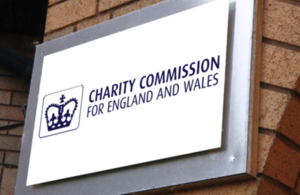The Role and Importance of the Charity Commission

Introduction
The Charity Commission for England and Wales is an essential regulatory body that oversees charities to ensure they operate within the law. Established under the Charities Act of 1992, it plays a crucial role in maintaining public trust in charities, ensuring that funds are allocated properly, and that organisations adhere to their charitable objectives. The relevance of the Charity Commission has been highlighted in recent years due to various reforms aimed at increasing transparency and accountability in the charity sector, particularly amidst concerns over financial mismanagement and fraud.
Recent Developments
In a recent report released in October 2023, the Charity Commission indicated a renewed focus on monitoring smaller charities, which traditionally received less oversight. This shift is in response to a surge in public scrutiny towards how charitable organisations manage their finances, especially during economic uncertainty. The report noted that 20% of charities have reported difficulties in raising funds, raising alarm about potential risks of mismanagement.
The Charity Commission has introduced a more robust framework for assessing the performance of charities, which includes periodic evaluations and the implementation of new digital tools designed to improve compliance reporting. This initiative aims to bolster public confidence by ensuring that charities are fulfilling their stated missions and using donations effectively.
Consequences of Non-Compliance
The importance of compliance cannot be overstated. Recent cases have shown that charities failing to adhere to regulations could face serious repercussions, including financial penalties or deregistration. The Charity Commission has issued several warnings and penalties this year alone to charities found in breach of the rules, which underscores its commitment to maintaining the integrity of the sector. For instance, a charity based in Kent recently lost its status due to undisclosed financial activities that raised concerns about charity funds being misused.
Conclusion
With the landscape of charitable giving continuously evolving, the role of the Charity Commission remains more critical than ever. Its ongoing reforms and increased scrutiny are designed to protect both the public and the charities themselves. As economic pressures persist, ensuring that charitable organisations remain accountable and trustworthy will be vital for sustaining public support and engagement. The future of charitable giving in the UK hinges on the integrity of the Charity Commission’s regulations, paving the way for a more transparent and effective charity sector.







